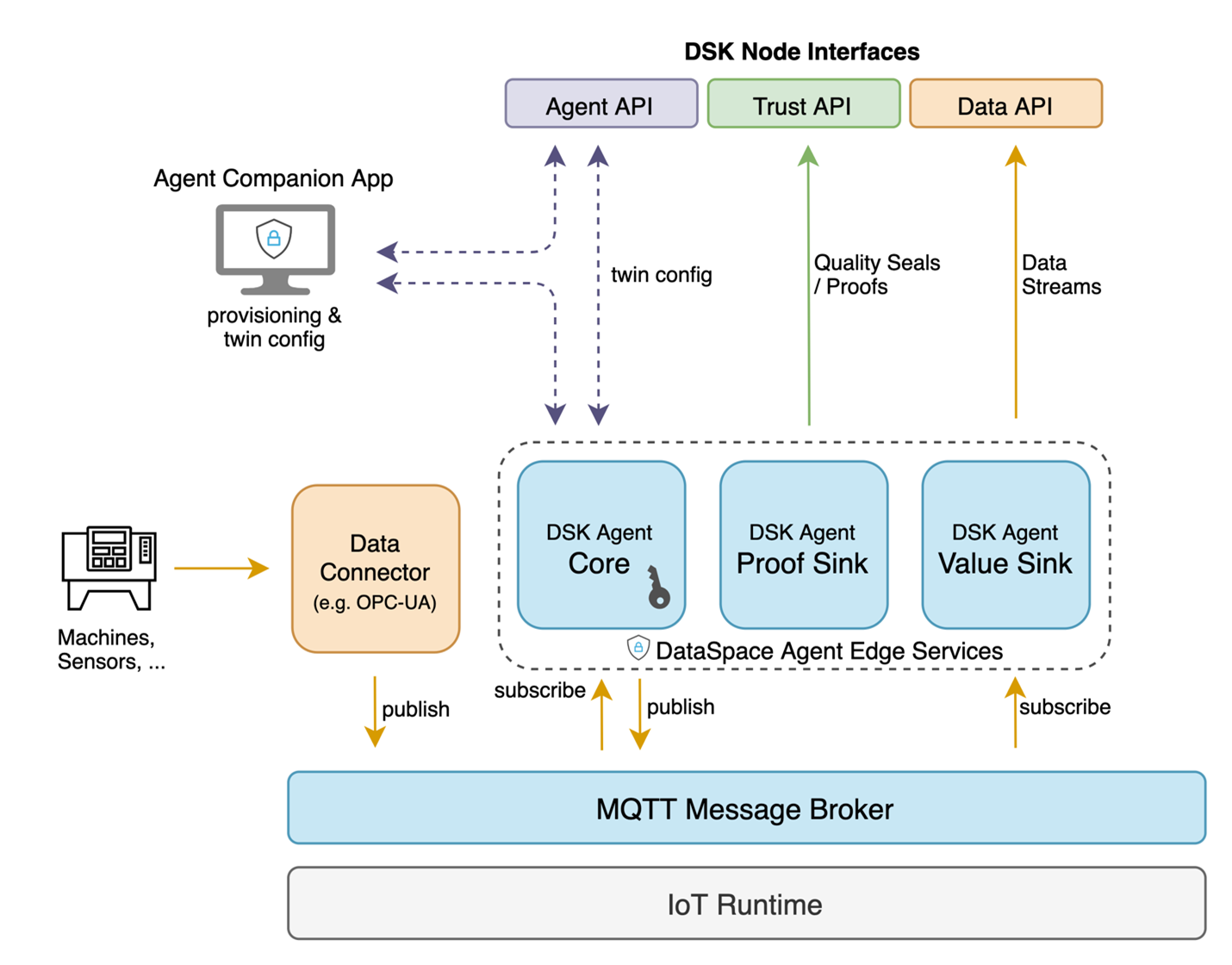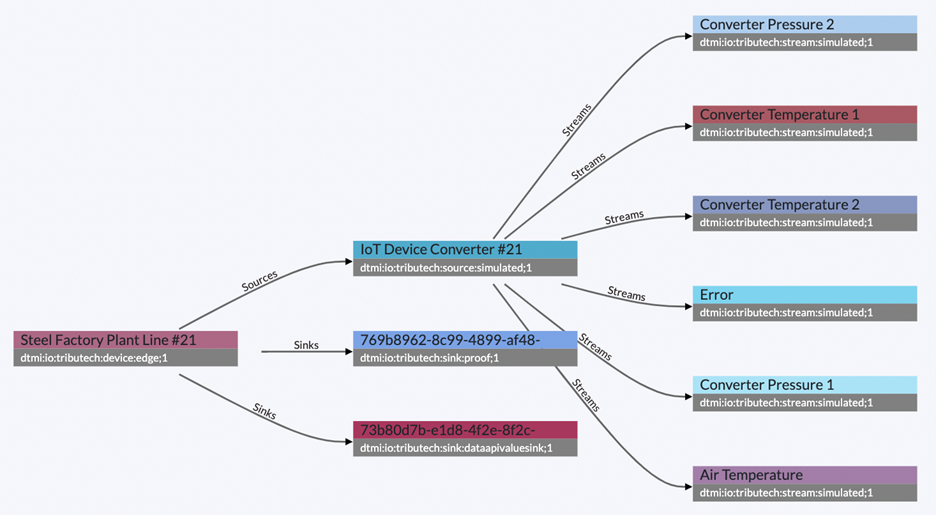Agent Architecture
In this section, we will have a more detailed look at the DSK Agent architecture and services to give you a better understanding of the system and the concepts behind it. There are two different versions of Agents for edge (docker) and embedded (C library/hardware module) IoT devices, on this page, we use the docker-based version for edge devices as an example and outline the core concepts applying to both implementations.
System & Service Architecture
The following figure provides an overview of the DSK Agent services and the communication with DSK Node APIs.

The DSK Agent subscribes to available data streams on the message bus, generates data quality seals, transferers the data streams and quality seals to the DSK Node middleware and maintains a digital twin based self-description that is also used for the configuration.
The core modules of the DSK Agent are available as docker-compose application bundle that includes core services, sinks and a MQTT message broker. In addition to the core application bundle, the Agent supports integrations via data connectors (e.g. OPC-UA) and integrations into IoT runtimes of IoT device management platforms (e.g. Azure IoT Edge).
Generation of Data Quality Seals
To enable the verification of data integrity and authenticity between a data source and data consumers across different infrastructures, the DSK Agent generates and stores verifiable data quality seals (also called proofs) in the blockchain-based trust layer.
For each datapoint or set of datapoints (depending on the configuration), the Agent creates a signed SHA 256 root hash that is transferred to the Trust API endpoint of a DSK Node and stored on-chain. In addition, each proof / data quality seal includes a reference that points to the raw data that is stored off-chain in the data layer of a DSK Node or an external storage system, per default transferred to the Data API endpoint.
Self-description and Configuration
The configuration and self-description of each Agent is modelled as a digital twin, stored as a DTDL JSON file and synchronized with the agent management on the backend side. The configuration includes everything that is needed to configure an Agent, including connected sources and sinks. The configuration is handled through the Agent Companion App and the Agent Management of an DSK Node.

Secure Provisioning and Linking
To generate data quality seals, a DSK Agent requires a cryptographic key pair. Therefore, the DSK services provide a secure key provisioning and linking process for Agents that include:
- Authentication and logging of users that provision Agents
- Secure offline generation of key pairs (HSM or local storage)
- A signing challenge to link Agents
- A public key registry to store keys of provisioned Agents
Users can download the Agent Companion App to link and provision an Agent to a DSK Node. For this process, a user needs to sign in to verify his permissions and track/log the provisioning activities within his identity. These steps protect the system against malicious parties that want to link an Agent or send corrupted/manipulated data.